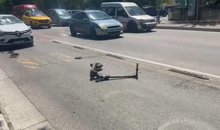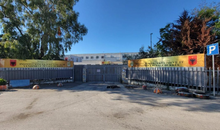
 Flash News
Flash News
Drenova prison police officer arrested for bringing drugs and illegal items into cell
Lavrov: NATO is risking self-destruction with new military budget
Kurti and Vučić "face off" tomorrow in Skopje
Construction worker dies after falling from scaffolding in Berat
The prosecution sends two Korça Municipality officials to trial
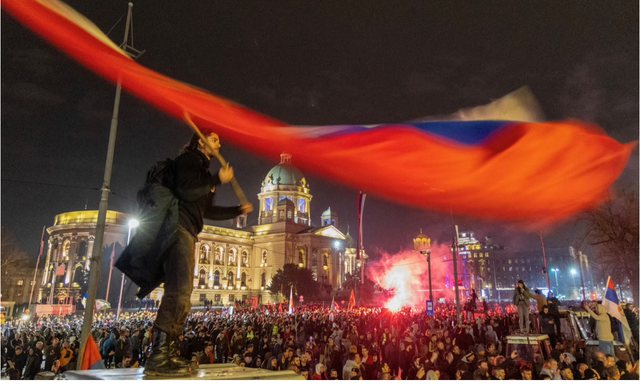
Press freedom in Serbia is facing a "dangerous turning point", following increased pressure on independent media by ministers and state-backed media, a group of senior editors has warned.
The editors, who are all from publications within the independent group Media United, said their reporters faced "constant harassment, physical attacks and smear campaigns" after their reporting in the country, which has been gripped by protests against its autocratic president, Aleksandar Vucic.
Their intervention follows what appears to have been the largest anti-corruption demonstration in Serbia's history this month. The mass gathering in Belgrade marked the culmination of four months of anti-government protests, following the deadly collapse of a train station concrete tent in the northern city of Novi Sad last November.
Civil society groups have been warning for months about an increasingly hostile environment for independent media since the collapse of the station, which killed 16 people and sparked a political backlash against Vucic's pro-Russian administration.
"Media in Serbia is at a dangerous turning point," the editors write in an open letter signed by five media outlets and included Igor Božić, the news director of N1 Serbia, affiliated with CNN. "The government is stepping up its attack on independent journalism, especially targeting media within the United Media, as the political crisis worsens and public frustration grows.
"Instead of addressing real public issues, the government creates false stories, which paint independent media as foreign agents and enemies of the state. As a result, our journalists are attacked, blocked from official events and targeted, with disinformation aimed at breaking the public's trust."
The NGO Reporters Without Borders (RSF) has said that pressure on the media in Serbia has reached levels not seen since the 1990s. It has also urged the EU to condemn a raid on the offices of the Centre for Research, Transparency and Accountability (CRTA), an NGO that runs a prominent fact-checking website.
Pavol Szalai, head of RSF's EU-Balkans office, said Serbia was 98th out of 180 countries and territories in the global press freedom index last year, its lowest ranking in the index's 22 years.
There have been several reports of hostility towards independent journalists, since the train station disaster. Late last year, N1 journalist Žaklina Tatalović and her cameraman Nikola Popović were harassed while covering the protests. Local press freedom groups said at the time that Tatalović and Popović had endured sexist insults and physical violence. Police officers are accused of not interfering.
Another N1 reporter, Jelena Mirkovic, was attacked while covering protests against the demolition of a bridge. She suffered a neck injury and was then unable to work. Last month, the colleague of N1 journalist Ksenija Pavkov was verbally threatened during the reporting.
In their letter, the editorial group said that Vucic was falsely accusing journalists of "stirring up unrest". They also said financial and regulatory pressures were being applied, forcing advertisers and business partners to pull out.
"With ongoing student protests and a disbanded government, in anticipation of new elections, we are deeply concerned about the safety of our journalists on the ground," they write. "The growing hostility towards independent media, fueled by the government's orchestrated rhetoric, has created an environment where violence is not only allowed, but also encouraged.
"In the last four months alone, our journalists, including Zaklina Tatalović, Ksenija Pavkov and Jelena Mirkovic, have suffered physical and verbal attacks. Despite the clear video testimonies of the perpetrators, the police have done nothing to hold them accountable."
Half a million people have also signed an online petition calling for an independent investigation into whether security forces in Serbia used a sound weapon – what the petition described as a 'soundball' – during the March 15 rally.
Vucic remains under pressure and faces the most dangerous moment of his 12-year rule. Protests have been a regular feature in Serbia since November. The president has so far sought to remove the blame, with a series of resignations arising from the collapse of the station.
The Serbian government, led by Prime Minister Miloš Vucevic, officially resigned last week, with Vucic saying elections could follow in June.
Protesters are demanding accountability for the disaster in Novi Sad, as well as more transparent institutions based on the rule of law. More than a dozen people have been charged, in connection with the collapse of the tent. On Friday, it was announced that a teenager was the last to die from injuries sustained in the disaster.
Around 325,000 people took to the streets of Belgrade on March 15, although the government has disputed these estimates.
The footage shows crowds suddenly splitting, with some complaining of feeling the ill effects associated with the use of a sound weapon. However, senior government politicians and police have denied that such a weapon was deployed. Vucic described the claim as an "evil lie", aimed at "the destruction of Serbia"./ The Guardian.
Latest news



Second hearing on the protected areas law, Zhupa: Unconstitutional and dangerous
2025-06-30 22:18:46



Israel-Iran conflict, Bushati: Albanians should be concerned
2025-06-30 21:32:42

Fuga: Journalism in Albania today in severe crisis
2025-06-30 21:07:11
"There is no room for panic"/ Moore: Serbia does not dare to attack Kosovo!
2025-06-30 20:49:53

Temperatures above 40 degrees, France closes nuclear plants and schools
2025-06-30 20:28:42
Lavrov: NATO is risking self-destruction with new military budget
2025-06-30 20:13:54
Turkey against the "Bektashi state" in Albania: Give up this idea!
2025-06-30 20:03:24

Accused of sexual abuse, producer Diddy awaits court decision
2025-06-30 19:40:44



Kurti and Vučić "face off" tomorrow in Skopje
2025-06-30 18:44:12
Tourism: new season, old problems
2025-06-30 18:27:23


Construction worker dies after falling from scaffolding in Berat
2025-06-30 17:51:44




Almost free housing: East Germany against depopulation
2025-06-30 16:43:06

Hamas says nearly 60 people killed in Gaza as Trump calls for ceasefire
2025-06-30 16:14:15
Drownings on beaches/ Expert Softa: Negligence and incompetence by institutions!
2025-06-30 16:00:03


European ports are overloaded due to Trump tariffs
2025-06-30 15:30:44
The prosecution sends two Korça Municipality officials to trial
2025-06-30 15:19:54

Lezha/ Police impose 3165 administrative measures, handcuff 19 drivers
2025-06-30 14:55:04
Young people leave Albania in search of a more sustainable future
2025-06-30 14:47:52
Record-breaking summer, health threats and preventive measures
2025-06-30 14:36:19


Constitution of the Parliament, Osmani invites political leaders to a meeting
2025-06-30 14:07:54

Heat wave 'invades' Europe, Spain records temperatures up to 46 degrees Celsius
2025-06-30 13:42:02
Accident in Vlora, car hits 2 tourists
2025-06-30 13:32:16

Kurti confirms participation in today's official dinner in Skopje
2025-06-30 13:03:27

Fight between 4 minors in Kosovo, one of them injured with a knife
2025-06-30 12:38:45

Report: Teenage girls the loneliest in the world
2025-06-30 12:20:40
Commissioner Kos and Balkan leaders meet in Skopje on Growth Plan
2025-06-30 12:07:59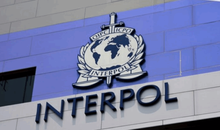
Wanted by Italy, member of a criminal organization captured in Fier
2025-06-30 11:55:53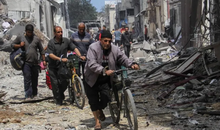
Hundreds of families displaced by wave of Israeli airstrikes in Gaza
2025-06-30 11:45:17
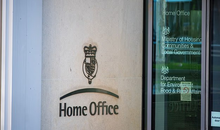
Zenel Beshi: The criminal who even 50 convictions won't move from Britain
2025-06-30 11:23:19
A new variant of Covid will circulate during the summer, here are the symptoms
2025-06-30 11:14:58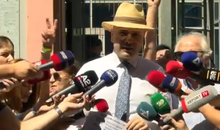
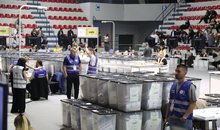
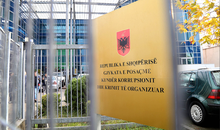
"Partizani" case, trial postponed to July 21 at the Special Court
2025-06-30 10:41:05
Uncontrolled desire to steal, what is kleptomania, why is it caused
2025-06-30 10:30:08
Requested change of security measure, hearing for Malltez postponed to July 7
2025-06-30 10:24:32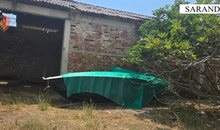
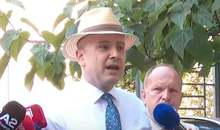

Output per working hour in Albania 35% lower than the regional average
2025-06-30 09:54:35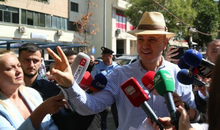
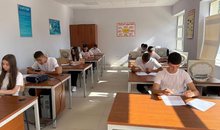
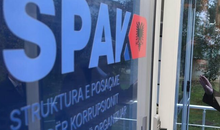
The trial for the "Partizani" file begins today
2025-06-30 09:27:57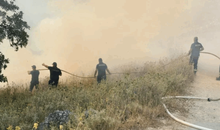
22 fires in the last 24 hours in the country, 2 still active
2025-06-30 09:21:28
How is the media controlled? The 'Rama' case and government propaganda
2025-06-30 09:13:36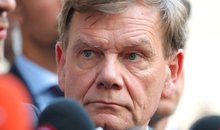
German top diplomat: Putin wants Ukraine to capitulate
2025-06-30 09:00:07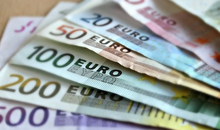
Foreign exchange, how much foreign currencies are sold and bought today
2025-06-30 08:44:38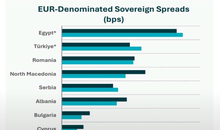
Chart/ Sovereign risk for Albania from international markets drops significantly
2025-06-30 08:26:38
Horoscope, what do the stars have in store for you?
2025-06-30 08:11:44
Clear weather and passing clouds, here is the forecast for this Monday
2025-06-30 07:59:32
Morning Post/ In 2 lines: What mattered yesterday in Albania
2025-06-30 07:47:37
Milan make official two departures in attack
2025-06-29 21:57:23
6 record tone
2025-06-29 21:30:46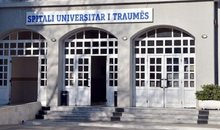
4-year-old girl falls from balcony in Lezha, urgently taken to Trauma
2025-06-29 21:09:58
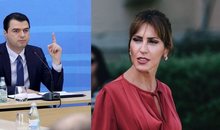

Assets worth 12 million euros seized from cocaine trafficking organization
2025-06-29 19:39:43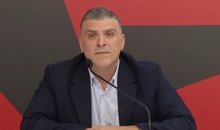
Fire in Durrës, Blushi: The state exists only on paper
2025-06-29 19:17:48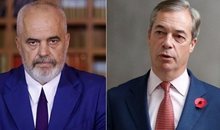
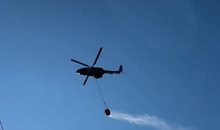
Fire endangers homes in Vlora, helicopter intervention begins
2025-06-29 18:27:51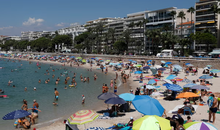
France implements smoking ban on beaches and parks
2025-06-29 18:02:08
England U-21 beat Germany to become European champions
2025-06-29 17:42:49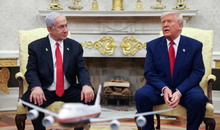
Trump criticizes Israeli prosecutors over Netanyahu's corruption trial
2025-06-29 17:08:10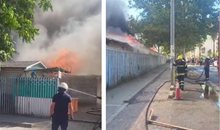
Street market in Durrës engulfed in flames
2025-06-29 16:52:57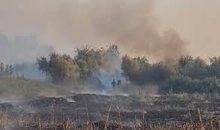
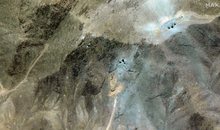
UN nuclear chief: Iran could resume uranium enrichment within months
2025-06-29 16:03:24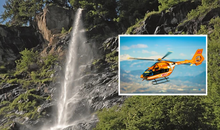
Albanian man dies after falling from cliff while climbing mountain in Italy
2025-06-29 15:52:01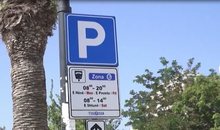
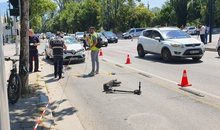
Another accident with a single-track vehicle in Tirana, a car hits a 17-year-old
2025-06-29 15:07:15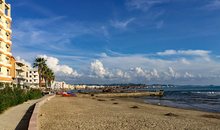
While bathing in the sea, a vacationer in Durrës dies
2025-06-29 14:54:01
Sentenced to life imprisonment, cell phone found in Laert Haxhiu's cell
2025-06-29 14:26:40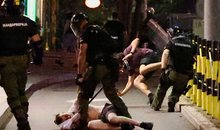
77 people detained in protest, Vučić warns of new arrests
2025-06-29 14:07:46